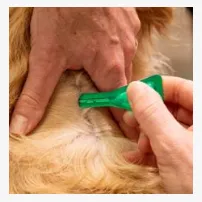- Afrikaans
- Albanian
- Amharic
- Arabic
- Armenian
- Azerbaijani
- Basque
- Belarusian
- Bengali
- Bosnian
- Bulgarian
- Catalan
- Cebuano
- Corsican
- Croatian
- Czech
- Danish
- Dutch
- English
- Esperanto
- Estonian
- Finnish
- French
- Frisian
- Galician
- Georgian
- German
- Greek
- Gujarati
- Haitian Creole
- hausa
- hawaiian
- Hebrew
- Hindi
- Miao
- Hungarian
- Icelandic
- igbo
- Indonesian
- irish
- Italian
- Japanese
- Javanese
- Kannada
- kazakh
- Khmer
- Rwandese
- Korean
- Kurdish
- Kyrgyz
- Lao
- Latin
- Latvian
- Lithuanian
- Luxembourgish
- Macedonian
- Malgashi
- Malay
- Malayalam
- Maltese
- Maori
- Marathi
- Mongolian
- Myanmar
- Nepali
- Norwegian
- Norwegian
- Occitan
- Pashto
- Persian
- Polish
- Portuguese
- Punjabi
- Romanian
- Russian
- Samoan
- Scottish Gaelic
- Serbian
- Sesotho
- Shona
- Sindhi
- Sinhala
- Slovak
- Slovenian
- Somali
- Spanish
- Sundanese
- Swahili
- Swedish
- Tagalog
- Tajik
- Tamil
- Tatar
- Telugu
- Thai
- Turkish
- Turkmen
- Ukrainian
- Urdu
- Uighur
- Uzbek
- Vietnamese
- Welsh
- Bantu
- Yiddish
- Yoruba
- Zulu
Ное . 28, 2024 06:00 Back to list
Injectable Ivermectin Use in Swine for Parasite Control and Health Management
Injectable Ivermectin for Pigs A Comprehensive Overview
Ivermectin is a broad-spectrum antiparasitic agent that has garnered significant attention in veterinary medicine, particularly for its efficacy in treating parasitic infections in livestock. One of the most notable applications of ivermectin is its injectable form, which is particularly utilized in pigs. This article will explore the use of injectable ivermectin for pigs, including its benefits, administration, mechanisms of action, and safety considerations.
Understanding Ivermectin
Ivermectin is a member of the avermectin family, derived from the soil microorganism *Streptomyces avermitilis*. It exhibits potent efficacy against a variety of endoparasites (internal parasites) and ectoparasites (external parasites), including roundworms, lice, mites, and some types of ticks. In pigs, these parasites can lead to significant health issues, including poor growth rates, reduced feed efficiency, and overall compromised health.
Benefits of Injectable Ivermectin in Pigs
The injectable form of ivermectin offers several benefits for swine producers. Firstly, it ensures a reliable method of administration, particularly useful in managing heavily infested animals or in situations where oral administration may pose challenges. Injectable formulations allow for precise dosing and quicker absorption compared to oral formulations, which is crucial for immediate control of severe parasitic infections.
Furthermore, the long-lasting effects of ivermectin help reduce the frequency of treatments required. Pigs treated with ivermectin can experience enhanced productivity, as the elimination of parasites leads to better nutrient absorption, improved growth rates, and ultimately, a more profitable operation.
Mechanism of Action
Ivermectin acts by binding to glutamate-gated chloride channels, leading to paralysis and death of the parasites. These channels are critical for the nervous system function in invertebrates. Ivermectin's action is selective; it binds more securely to these channels in parasites than in mammals, which explains its considerable safety profile in the target animal species. This mechanism of action makes ivermectin effective against a variety of parasitic infections commonly seen in pigs.
injectable ivermectin for pigs

Administration Guidelines
When administering injectable ivermectin to pigs, it is essential to adhere to the manufacturer’s instructions and veterinary guidance. The recommended dose typically ranges from 200 to 400 micrograms per kilogram of body weight, depending on the specific formulation and parasite being targeted. It is generally administered subcutaneously or intramuscularly.
Proper technique is crucial to ensure that the drug is delivered into the correct tissue and to minimize the risk of adverse reactions. Pigs should be healthy at the time of administration, and any animals showing signs of illness should be evaluated by a veterinarian before treatment.
Safety Considerations
While injectable ivermectin is generally safe for pigs, consideration must be given to withdrawal times and potential side effects. Following treatment, pigs may need a designated withdrawal period before being sent for slaughter to ensure that ivermectin residues do not exceed safe levels in meat products. Producers must comply with regulatory guidelines regarding these withdrawal periods to ensure both animal health and consumer safety.
Adverse reactions to ivermectin are rare but can occur. Symptoms may include lethargy, incoordination, or localized swelling at the injection site. Any unusual reactions should be reported to veterinary professionals promptly.
Conclusion
Injectable ivermectin has proven to be a valuable tool for managing parasitic infections in pigs. With its effective action, reliable administration, and favorable safety profile, it plays a critical role in promoting animal health and enhancing productivity in swine operations. As with any medication, it is imperative to follow guidelines for dosage and administration and to consult with veterinary professionals to ensure optimal outcomes for pig health and farm profitability. Ultimately, the use of injectable ivermectin represents a significant advancement in managing the health and welfare of pigs in the agricultural sector.
-
Guide to Oxytetracycline Injection
NewsMar.27,2025
-
Guide to Colistin Sulphate
NewsMar.27,2025
-
Gentamicin Sulfate: Uses, Price, And Key Information
NewsMar.27,2025
-
Enrofloxacin Injection: Uses, Price, And Supplier Information
NewsMar.27,2025
-
Dexamethasone Sodium Phosphate Injection: Uses, Price, And Key Information
NewsMar.27,2025
-
Albendazole Tablet: Uses, Dosage, Cost, And Key Information
NewsMar.27,2025













